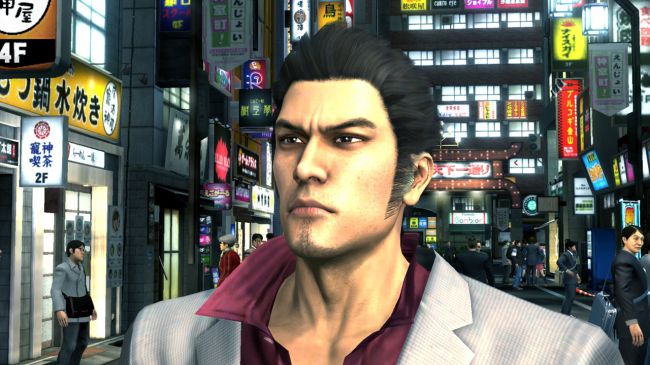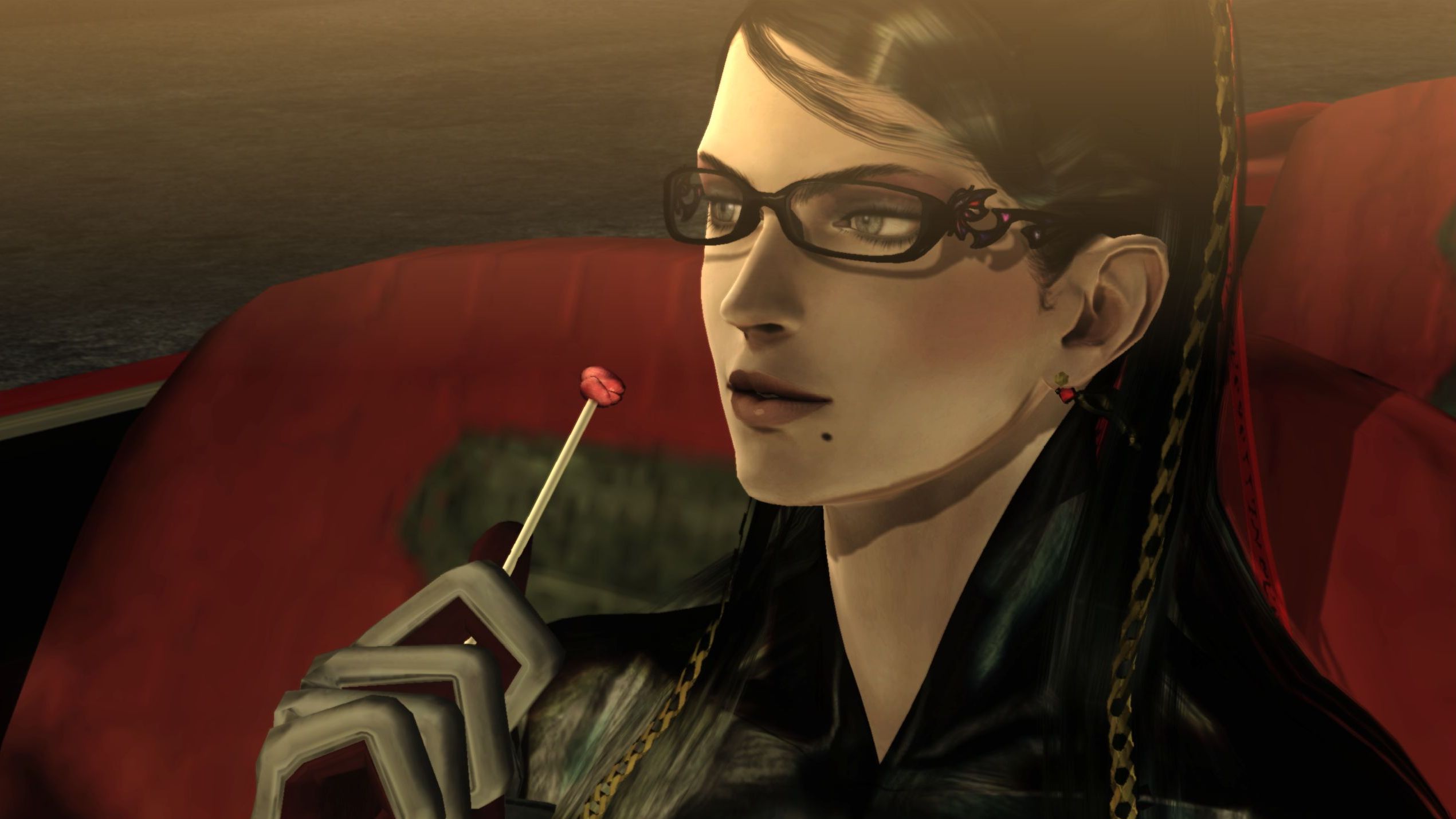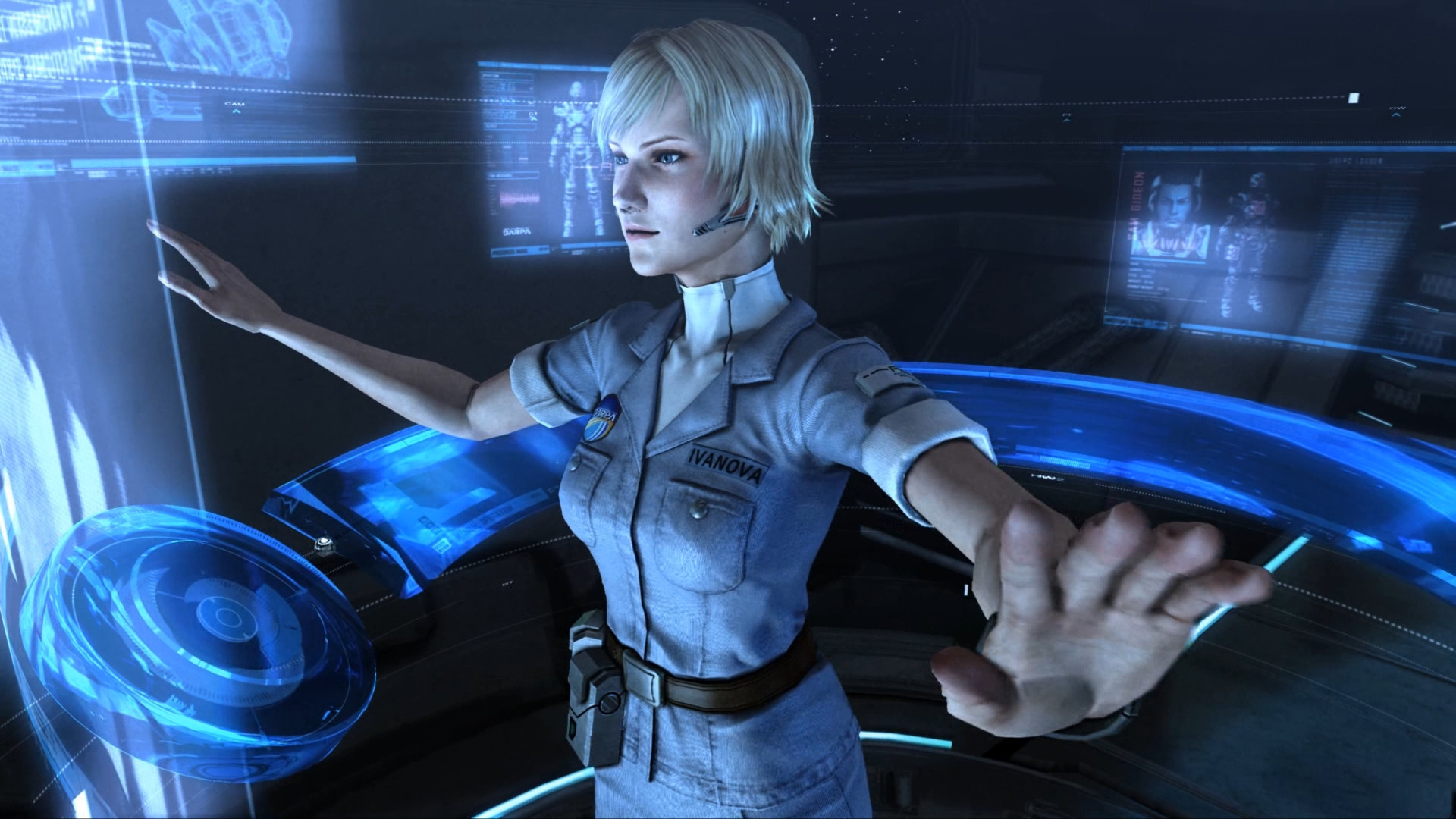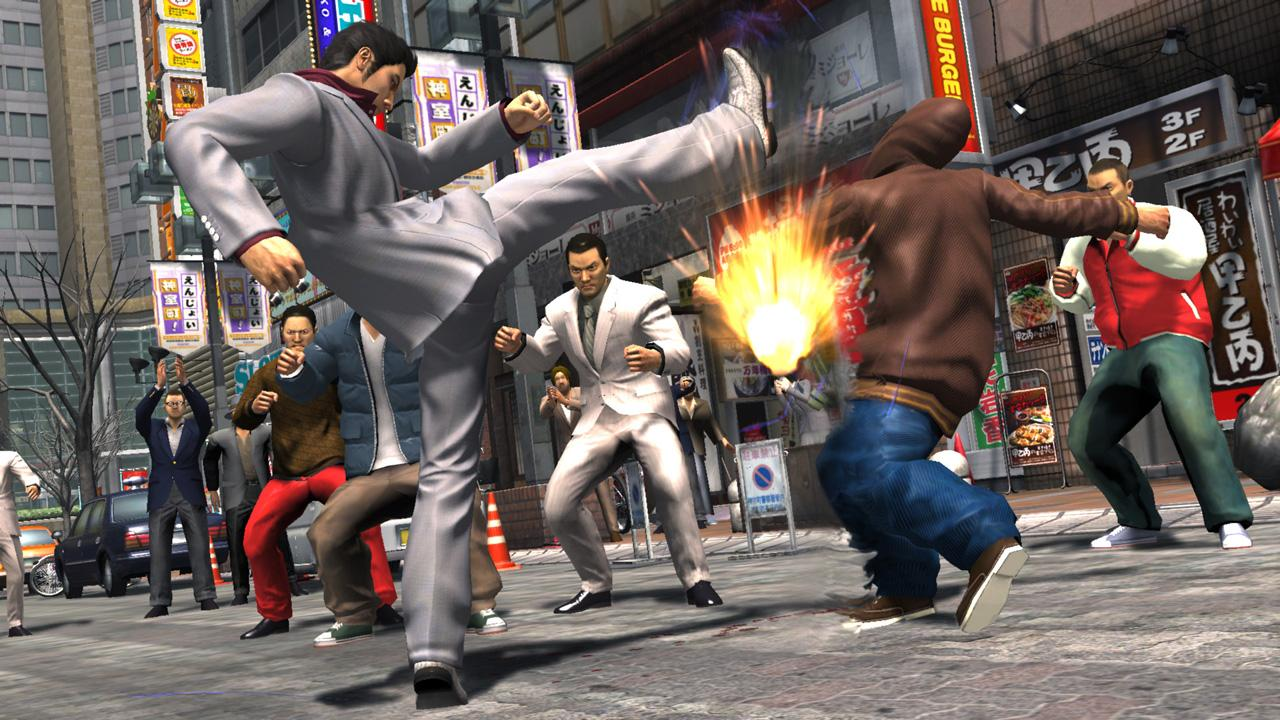'We don't feel anything is off the table' says Sega on growing its PC catalogue
A conversation on conversions at E3.

At this year's E3, PC Gamer spoke to Sega Europe's senior vice president of commercial publishing John Clark about the possibility of porting as yet unported Japanese console games to PC—not least Yakuza and Persona. We were told the pair, and possibly a number of others, are "on that list" of games the publisher would love to bring to desktops, and that Clark himself felt it would be "incredible" to deliver those games to a PC audience.
Below is the full conversation between our Samuel and Clark which offers an interesting peak behind the velvet rope of console-to-PC conversions.

John Clark is Sega Europe's senior vice president of commercial publishing and has been at the company for over a decade. He's held a variety of positions in that time, having worked for Eidos before that.
PC Gamer: As part of your Searchlight program, you're looking for developers to collaborate with. You just announced a collaboration with Two Point Studios, with former Lionhead staff Mark Webley and Gary Carr. What can we expect from that?
John Clark: We released a game called Motorsport Manager with Playsport Games and they're a very talented startup—industry experts, great developers, just wanting to bring a vision and develop this franchise and develop this community.
Same with Two Point—a group of veterans which are starting up, ex-Bullfrog, ex-Lionhead. They have their vision, they have a vision which aligns with [the] principles we’ve got in franchise building and developing community and delivering really strong, valuable experiences.
What was the process behind signing Two Point? Did they approach you, did you scout them out? How does that conversation start?
A bit of both, really. So we have our A&R (artists and repertoire) guys, we’re constantly coming to shows such as [E3] and others where we’re always talking to developers, to people who know developers, and to channel partners who say “these guys over here, they’re doing something really, really cool.” We just keep talking to people and telling them what is driving us at Sega and we do end up finding some really, really cool opportunities.
Keep up to date with the most important stories and the best deals, as picked by the PC Gamer team.
And we’re looking to do more of that. We’ve started our relationship with Playsport Games and we’ve released a game and we want to work on more and build a franchise together with them. We hope to get to the stage with Two Point where we’ll launch a fantastic gaming experience and we’re really excited—we’re not saying what it looks like at this stage, but we think that that’s going to be the start of something big to come.
Great. Do you think we’ll hear more about that game later in the year?
Yeah, I’m trying to think about what we’ve got internally and when we’re going to release things but yeah, towards the end of the year I’m hoping we’ll give you more of an idea of what the project’s all about. You’ll love it.

You’ve had a lot of success from PC ports of Japanese console games—what motivated the decision to push hard in that direction?
Two things to that. One is over the last few years, we’ve built a really strong business around Steam—it’s been a long-standing partnership, [and] we’ve been operating on Steam in a particular way for many years. Medieval II: Total War was one of the first games to be tied into Steam when it went 'open'—and we really cherish the business that we’ve built together with Steam. Along the way, we’ve learned what’s really important to the PC audience. So that’s happening over one side of the business—we’re optimising that business and growing it and making it really relevant.
But at the same time, Sega has a real fantastic catalogue of titles. Pretty much everyone that works at Sega, they’re fans of Sega so we love all the games that we bring out, whether it’s Total War or Football Manager, or whether it’s the historic titles like Sonic the Hedgehog or Crazy Taxi or Bayonetta and Vanquish—we love those.
As gamers we play on Steam, we see our franchises on Steam, [and] we’d love to play all of our games on Steam. So when we’re looking to bring games like Bayonetta and Vanquish, [we] make sure that they’re relevant today. On one hand it’s getting the game ported to PC but on the other hand we need to make sure that they’re good PC games, making sure that technically they really, really deliver what the community wants and for what the tech-savvy community wants on Steam.
Things like frame rate is important to us, graphics card compatibility, mouse and keyboard, Steam features...we’ve managed to develop a way of working which really connects with that specific consumer as well.
When we launched Bayonetta, straight away on Steam I saw somebody say 'We want to see these games on Steam now, we want to see... Sega, we want to see you working on these...' And we’re looking at that and we say 'Yeah, we know! We know!'
John Clark
I’d say more so than any other publisher with Japanese roots—we’ve seen a few publishers move into that area—you seem conscious of the demands from a PC audience.
Yeah, ultimately whether you look at console, PC or mobile, you make games specifically for the way that they’re played on that platform. I think there are quite a lot of games that don’t necessarily take the platform idiosyncrasies into account, and that’s something that we understand on PC. We see this huge platform in Steam, in the same way that on mobile you can’t just put a game on mobile and expect it to appeal to everybody.
You have to make sure it’s aligned to how the audience interacts with that game—giving it a little bit more time, a little bit more detail and making sure that the consumers are really engaged with that game and how it’s aligned technically to the way that they want to play.
What motivates your choices of games to bring to PC?
If I asked you to write me a list of the ten games you want Sega to bring out on PC, it probably isn't any different from the list [we have]. What motivates that, as I say, [is] that people just have an affinity with [our] games, and there’s no surprise in the games that would be on that list.
We recently launched Bayonetta and Vanquish, and prior to that we launched Valkyria Chronicles. Further back, we launched Typing of the Dead—and all of these games that are either sort of delivering the experiences that the community wants, or they’re enabling us to understand how the community plays those games and how the community interacts. What inspires or motivates us... I think when we launched Bayonetta, straight away on Steam I saw somebody say “We want to see these games on Steam now, we want to see... Sega, we want to see you working on these...”
And we’re looking at that and we say “Yeah, we know! We know!”—and we want to work on them as well and we haven’t finished. We just haven’t finished with Vanquish and Bayonetta, we’re still there—we are actively working on other games as we speak... we’re not ready to tell you what they are, but there will be news coming out in the next few months.

What are the challenges of porting a game to PC? Vanquish never ran at 60FPS, for example—what's the process behind that?
First, [depending on how old the game is], what’s the archiving of the source code like? Does the engine and the way that the game was built enable us to elegantly port it onto PC? As you say, they weren’t built for variable frame rates or 60 frames per second, so we worked with Platinum Games on that. But we also bring in our own expertise from some studios that we work with in the UK, and some talent that we know understand how we want to align PC games to the audience.
So there’s the technical aspect, there’s the source code, the status of the source code. There is everything from licensing and past agreements, but it could be anything from music or what items are in the game. Are we drinking a particular type of beverage, are we eating a particular type of food, or driving a particular car? That’s all relevant through a lot of Sega games, and we do need to check all of those, and it does have an influence on what is the next one on the list that we can get to.
I wonder if the success of the Japanese games you’ve ported so far has shaped any of your decisions behind the scenes in terms of what you do next—has it made you consider further collaborations with Platinum and did it affect the future of Valkyria, which now has a new entry coming out on consoles?
I can’t say explicitly if that is responsible for it, but I think it really shows that the vibrancy of the audience for any given IP—the fact that it can be multiplatform, it can exist side by side, [that] we should really, really consider the feedback of the community. We can see that, we can develop that relationship. Having the games on something like the PC platform where we’re able to really understand that relationship a lot more, when we look at further launches of Valkyria, it just makes sense to embrace that, doesn’t it?
It gives us that validation that these games are not just fond old memories—they are still relevant today and we can keep building the audience and building the community.
I know Valkyria exceeded your expectations by a long way—would you say that the Platinum stuff is doing so too?
Yeah, we’ve got strong expertise in the way that our analytic teams and our data teams work on that—a lot of it is about the speed with which the community rally around to support these projects. If we look with Bayonetta especially, the amount of support that you’re getting people to recommend they buy this game because maybe Sega will make more of them—that doesn’t go unnoticed, and therefore that’s why it’s important for us to deliver that quality.
It also drives the way that we reach out to the community with it as well, so with Bayonetta we did a specific way of communicating which was different to issuing a press release and having a pre-order campaign. We were more creative with how we engaged the community—and that’s really important to us as well, it feels as though the community is playing an active role in being evangelists of the game, and that builds a lot of value and it certainly makes us all feel really, really warm towards the community and really grateful that they’re so passionate.

The Vanquish announcement went down really well.
Yeah—for Vanquish we dropped in a Steam achievement that was, for anybody who knew Vanquish it was recognisable from Vanquish, and that was telling them that Vanquish was coming out, and it didn’t need us to put out a message whatsoever—that was messaged by the community.
Prior to that, with Bayonetta we launched the 8-Bit Bayonetta as a free game on April Fool’s Day and within that... it [took] people sixty seconds to finish this game, there were a whole load of features in there that led people to discover a URL which gave them a countdown timer, the community really got around that and really amplified the message. We don’t just want to tell you, we want you to feel part of that messaging, we want you to feel ownership because the community is so important in bringing these games back to life.
Are there any projects from your past where it’s just tangled up licensing wise or logistically to be able to do? Is that just a challenge that you face with some older games?
Absolutely. And [it's] a challenge that we accept and a challenge that we dive into and for us, it’s [about] figuring out a way through it, and we’ve got a really progressive attitude in that we want to see certain games come to market, and we’re committed to get certain games to market that fall into that exact category that you’ve just said.
It’s something that of course we’re talking about... Yakuza is out on console and it seems as though it would just be incredible to bring that to the PC audience.
John Clark
One thing that you haven’t done yet is bring any Atlus games to PC—I was wondering what the nature of that relationship is and whether that is something we could possibly look at in the future?
The great thing about being involved with Atlus and you see it through Sega America and Atlus—they’re bringing out Persona 5, which is an Atlus title but they’re bringing out new editions of the Yakuza titles, they’re doing that together —and so it just makes sense that we all talk together about extending all of those, incredible IP, across to Steam and recognise the fact that the PC audience adds to those community and consumer experiences, it doesn’t detract from it and it isn’t anything that they need to be concerned about, so... those conversations definitely happen.
We see our role as educating our business about PC and Steam as well as driving our business forward in sort of retail and on console as well, and we’re all aware of the opportunities that are across all platforms for the IP.

Everyone has that wish list of games they want to see on PC. You seem to be really conscious of that.
Yeah, if you send that list to us and I’ll you which ones we can tick, which ones are on our list, which ones are possibilities, which ones are not possibilities, which ones we’ve talked about, which ones we’re talking about, which ones we’re working on—they’ll be on that list.
Yakuza, is that a possibility on PC?
It’s on that list, you know? It’s something that of course we’re talking about, we can see that Yakuza definitely is out on console and it seems as though that would just be incredible to bring that to the PC audience.
I guess, along the same lines—Persona?
Of course, of course—I keep saying ahead of you, I’m trying to guess what you’re going to say next...
Sorry, I know you can’t confirm any of this.
No, absolutely. But we don’t feel that anything is off the table in terms of these conversations. The fact that as an organisation, we’re having these [conversations], they’re healthy conversations, they’re constructive, we recognise the value, we recognise the value of the community, we recognise the value of the IP.
The IP has got continued life to grow bigger and yeah, we’re having those conversations.


